
The Critical Mention documents in the video released to SOS by Fulton County
The Fulton County FY2022 Proposed Budget includes allocations for media monitoring services. The Department of External Affairs has a recurring allocation of $15,000 to procure professional media monitoring services, including broadcast, social/digital, and print media.
They also have a Broadcast, Cable & Film General Fund: $1,314,806
This fund supports activities related to broadcasting and media production, which might include creating public service announcements, informational videos, or other media content aimed at informing and engaging the community. Just keeping it in perceptive.
So the question I have it this, that $16,000 budget, is it spent on Fani alone or the entire county??Fulton is HUGE and is the home of the city of Atlanta.
District Attorney DA – Appeals General Fund 699,376
District Attorney DA Juvenile General Fund 618,758
District Attorney DA Trial General Fund 29,174,718
District Attorney District Attorney_JSTR General Fund 1,049,116
District Attorney Federal Equitable Sharing Special Appropriation 67
District Attorney Restricted Assets Special Appropriation 303,358
Hurry, protect the corrupt.. quash it!!
Disclaimer the information and fact checking was done using GroK, ChatGPT and various searches via Google as well as the official open records act below
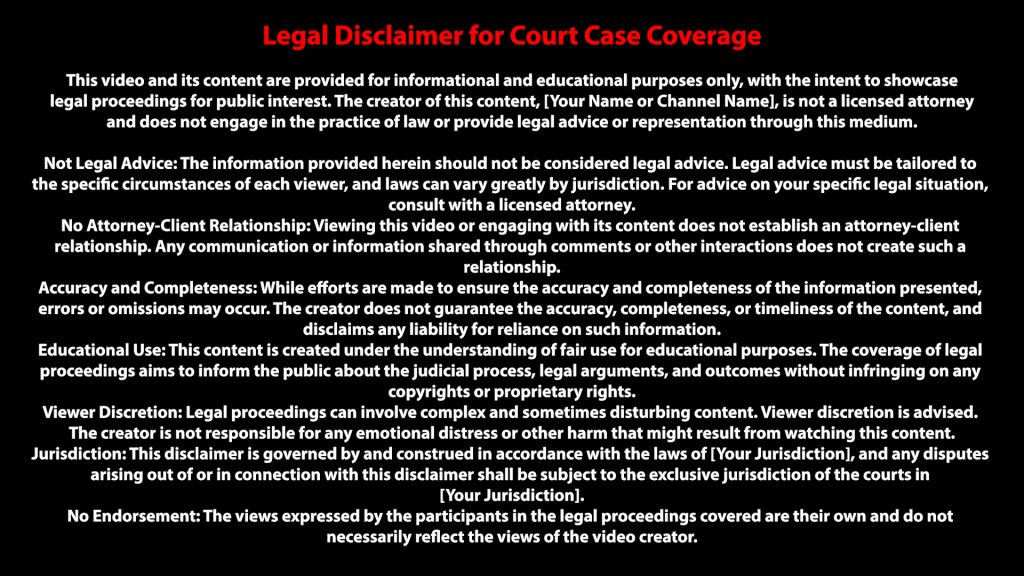

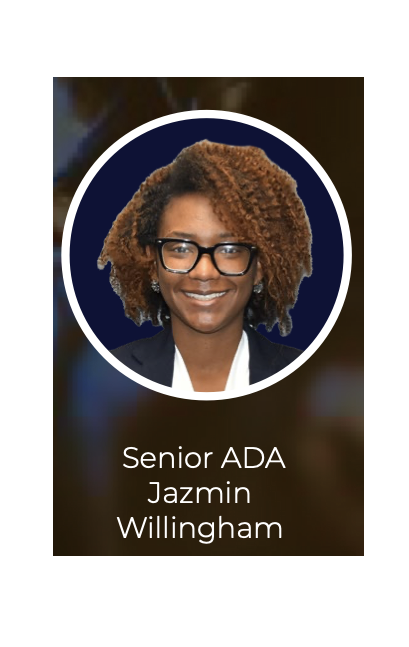


Lawyer Ashleigh Merchant https://www.criminaldefenseattorneysmarietta.com/contact-us
FULTON COUNTY, Ga. — Fulton County Judge Rachel Krause denied a motion to dismiss a lawsuit over open records against Fulton County District Attorney Fani Willis and her office.
The defense attorney for Fulton County Sandy Monroe

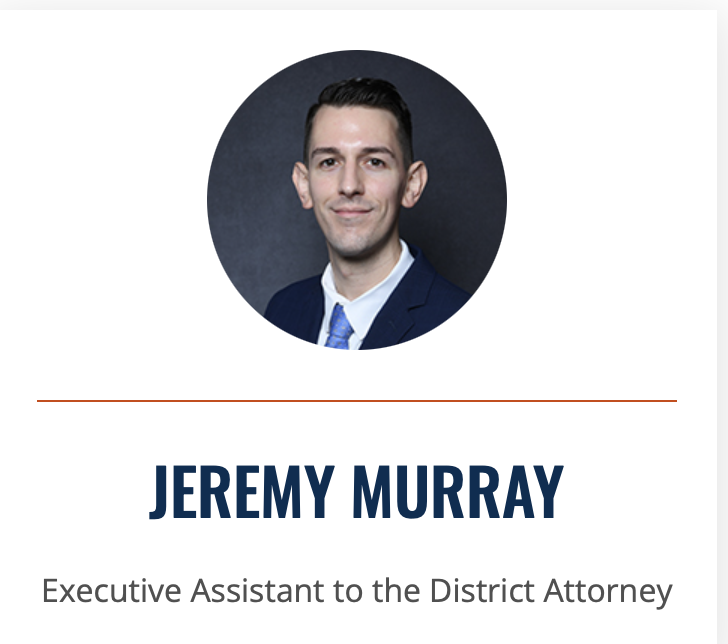

DEXTER BOND
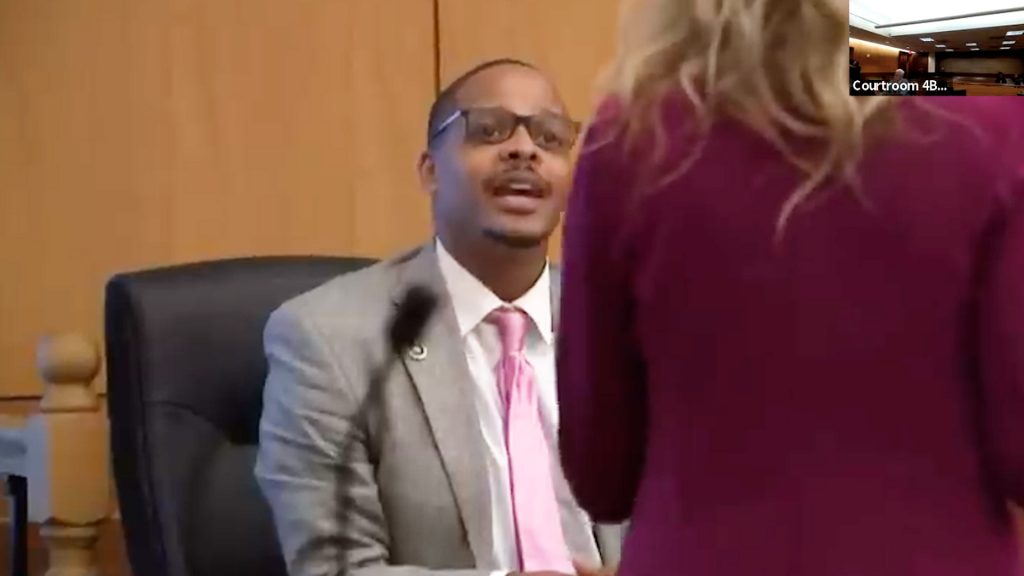
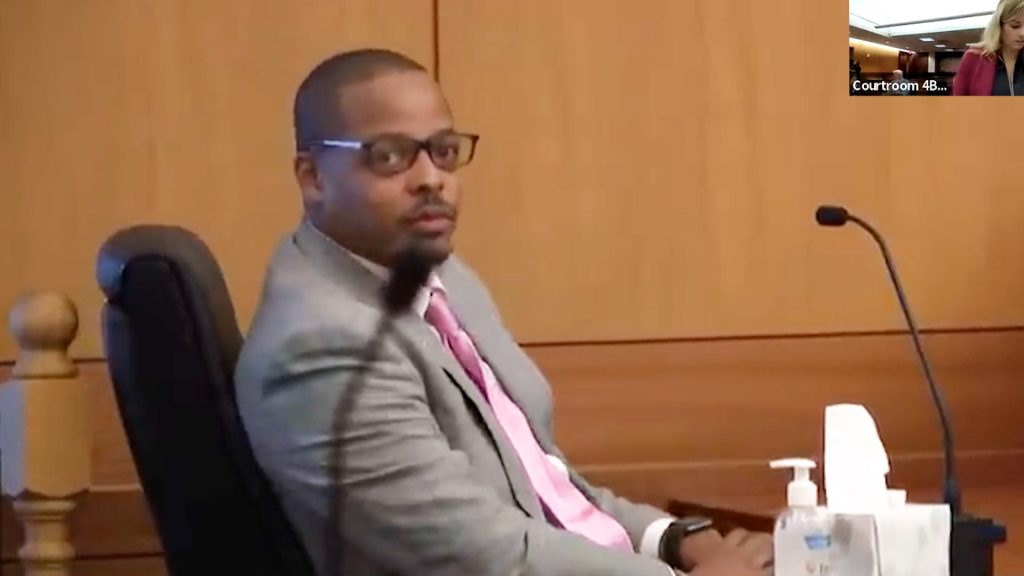
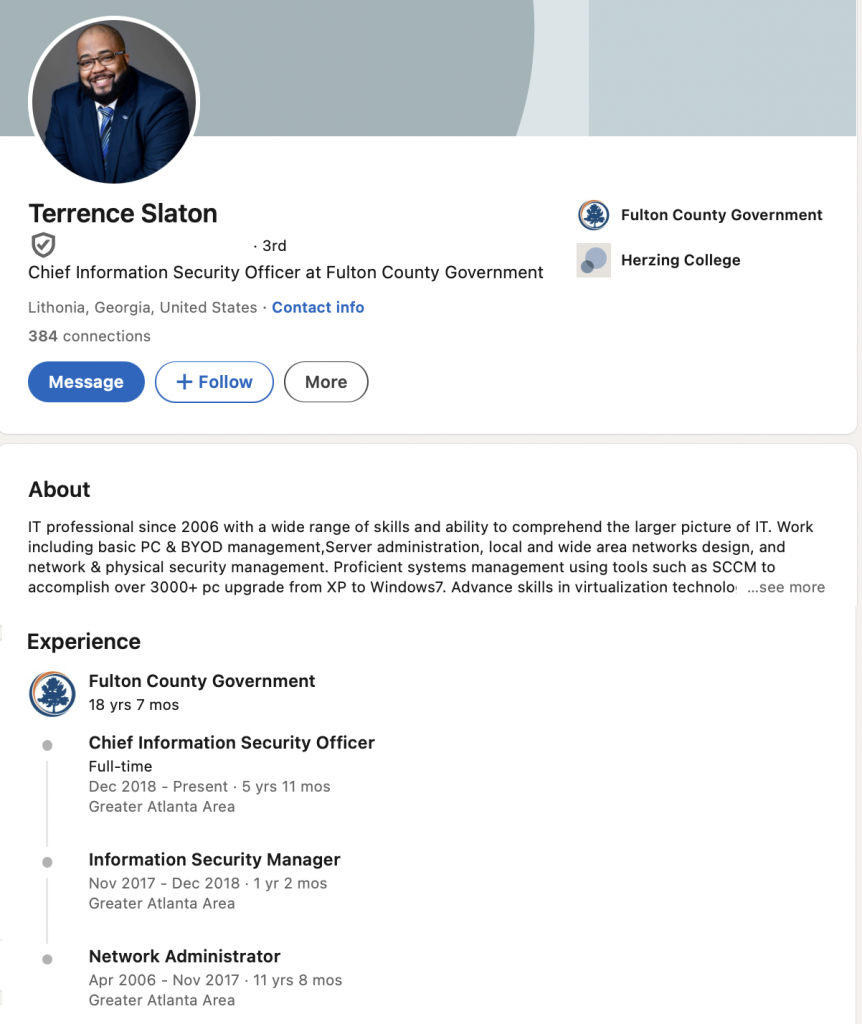
The merchant Law Firm

Hearing over open records lawsuit against Fani Willis | Court livestream 11-Alive coverage – Shields of shame is not endorsed or affiliated with the court hearings nor 11-Alive news
Fulton County Judge Rachel Krause
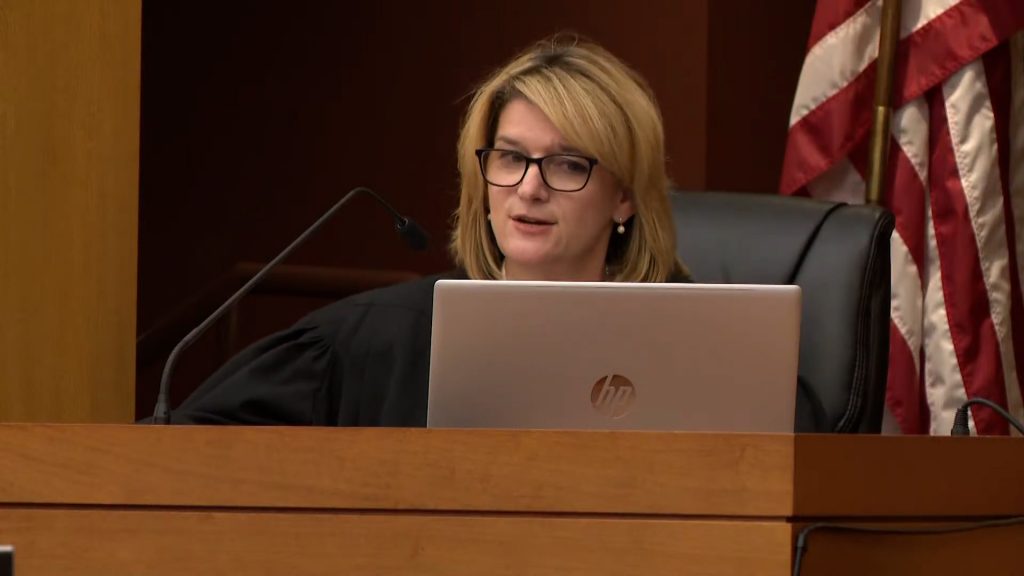
Amended complaint
The Merchant Law Firm, P.C. (“Plaintiff”), pursuant to O.C.G.A. § 50-18-73 and O.C.G.A. § 9-11-15, and hereby files its First Amended Complaint against the Fulton County District Attorney’s Office (“FCDA”) and Fulton County, Georgia (“County”)(collectively, “Defendants”) and Motion For Defendant To Show Cause, showing the Court further as follows:
On March 13, 2024, FCDA filed a motion to dismiss claiming, among other things, FCDA was not an entity subject to the requirements of Georgia’s Open Records Act and not subject to suit. While Plaintiff does not believe that motion should be granted, Plaintiff is filing its Amended Complaint prophylactically in the event the Court rules that FCDA is not an “agency” or “office” under the Open Records Act. If FCDA is not responsible for providing the documents Plaintiff seeks, then Fulton County must be, which is why it is being added as a defendant in this matter. With the exception of adding Fulton County as a defendant and referencing “Defendants” in the plural where appropriate, Plaintiff has not amended any material allegations set forth in the original complaint.
Georgia’s Open Records Act, O.C.G.A. § 50-18-70, et seq. (“Act”), is the important mechanism by which citizens of Georgia are able to evaluate their government’s use of resources. The Georgia General Assembly explained the purpose of the Act:
The General Assembly finds and declares that the strong public policy of this state is in favor of open government; that open government is essential to a free, open, and democratic society; and that public access to public records should be encouraged to foster confidence in government and so that the public can evaluate the expenditure of public funds and the efficient and proper functioning of its institutions. The General Assembly further finds and declares that there is a strong presumption that public records should be made available for public inspection without delay. This article shall be broadly construed to allow the inspection of governmental records. The exceptions set forth in this article, together with any other exception located elsewhere in the Code, shall be interpreted narrowly to exclude only those portions of records addressed by such exception.
Thus, the public policy behind the Act is to encourage transparency in government,
and there is a strong presumption that public records be made available for public inspection—and without delay. As the Georgia Court of Appeals has explained:
[T]he [ORA] was enacted in the public interest to protect the public—both individuals and the public generally—from “closed door” politics and the potential abuse of individuals and the misuse of power such policies entail. Therefore, the Act must be broadly construed to effect its remedial and protective purposes. The intent of the General Assembly was to encourage public access to information and to promote confidence in government through openness to the public and allow the public to evaluate efficient and proper functioning of its institutions.
A case referenced during trail Milliron v. Antonakakis
At the center of this action is an open records request Ryan Milliron sent to Respondent Manos Antonakakis, a professor employed by the Georgia Institute of Technology (“Georgia Tech”), seeking records related to Antonakakis’s purported services to Georgia Tech—a public agency—as a private contractor. As summarized by the Court of Appeals, the relevant facts are as follows:
[O]n July 10, 2022, Milliron submitted an Open Records Act request to Georgia Tech. On the same day, Milliron sent an Open Records request for the same information to Antonakakis, individually, by emailing Antonakakis’s personal counsel. In this separate request, Milliron demanded a search of “any . . . privately held email account likely to have agency records[,]” but nonetheless acknowledged that “the appropriate course of action would be to transfer the [requested material] to Georgia Tech for processing through their Open Records staff.” Antonakakis did not individually respond to Milliron’s request in his personal capacity, but Georgia Tech did respond and produced documents. Unsatisfied with the documents received from Georgia Tech, Milliron filed suit against Antonakakis in his individual capacity, seeking to force him to personally respond to the Open Records request and independently produce documents directly to Milliron.
In Milliron’s complaint against Antonakakis, Milliron alleged that Antonakakis performed work for Georgia Tech as both an employee and a private contractor, and that, in Antonakakis’s capacity as a private contractor, he had possession of public records he was required to produce to Milliron under the Open Records Act.
https://www.parkerpoe.com/news/2024/08/georgia-supreme-court-broadens-open-records-act-to
The Georgia Supreme Court ruled that government contractors are subject to the Georgia Open Records Act, meaning they must provide transparency in their dealings with the government. This ruling makes vendors or private companies who perform governmental functions open to scrutiny, particularly regarding public records tied to their government contracts.
Some potential categories of vendors that may be subject to this ruling include:
- Construction firms: Companies contracted for public infrastructure projects, like road building or public buildings.
- IT service providers: Companies providing software, hardware, or IT support to state agencies or local governments.
- Private prison operators: Firms running or managing correctional facilities on behalf of the state or counties.
- Consulting firms: Businesses offering strategic or legal advice to state agencies or departments.
- Maintenance contractors: Vendors responsible for maintaining public parks, roads, or buildings.
These contractors may be obligated to disclose documents related to their contracts, fees, and the nature of their services under the Open Records Act. If you need specific vendor names, it depends on the government entity involved.
To identify vendors potentially subject to the Georgia Open Records Act following the state Supreme Court ruling, here’s a list of categories and notable contractors who frequently do business with the Georgia state or local governments:
- Construction and Infrastructure Firms
- C.W. Matthews Contracting Co. – Frequently awarded contracts for road construction and infrastructure development across Georgia.
- Archer Western Contractors – Involved in large-scale infrastructure projects, including water treatment and transportation.
- Reeves Construction – Specializes in paving and construction projects in Georgia.
- Private Prison Operators
- CoreCivic – Operates private correctional facilities in Georgia, such as the Wheeler Correctional Facility.
- GEO Group – Manages detention centers and correctional facilities in the state.
- IT Service Providers
- Unisys – Provides IT services to state agencies, including security and digital infrastructure management.
- AT&T Government Solutions – Supplies telecommunication services and tech infrastructure to government offices.
- Consulting and Management Firms
- Accenture – Provides management consulting and IT services to various government agencies.
- KPMG – Offers audit, tax, and consulting services to state agencies, including financial management services.
- Healthcare Providers
- Wellpath (formerly Correct Care Solutions) – Contracts with the Georgia Department of Corrections to provide healthcare services in state prisons.
- Maximus – Handles Medicaid enrollment and services for the Georgia Department of Community Health.
- Waste Management Services
- Waste Management Inc. – Contracts with local governments for waste collection, recycling, and landfill management.
- Republic Services – Provides waste collection and disposal services across various municipalities in Georgia.
Video hearing analysis
There is a subtle issue here I deal with a lot, it’s related to the following article in the Georgia Open Records Act (GORA)
50-18-71 (f) As provided in this subsection, an agency’s use of electronic record-keeping systems must not erode the public’s right of access to records under this article.
Often times agencies will send me records my computer will not play, I say that in a general sense, more specifically VLC media player, Windows media player etc.. sometimes the agency will send the propriety software that will play the media file. Often times PDF documents can be corrupt, like Fani Willis, and can’t be opened with Adobe Acrobat or any other software. If the file is too large Acrobat will have issues as well as other apps of sorts. Because these agencies use antiquated and propriety hardware and software it can erode the publics access to view the file which creates a lawsuit just like this one! The beginning argument is around being able to even view the documents. In this case they reference powerpoint files. It is also worth noting the public should not have to purchase software to play the file also. The records shall be easy to read!
On a motion to dismiss the defense claims all records have been released but does not state by whom, and then the judge then asks which defendant satisfied the request?
The defense is having problems answering the question, who satisfied the request?
During this time defense attorney Sandy Monroe stated ” The request was firstly made to the DA’s office”
At this point after being asked multiple times who produced the records for the Marchant law Firm Monroe is struggling to answer the question. The main question once again is WHO to name as the proper defendant?
Monroe states no requests were made to Fulton County I.T therefore there is no liability. The issue here is, how does one submit a request to Fulton County I.T. ?
Have the records been released?
The defense file 4 motions to dismiss.
50-18-71 (b) (1) (A) Agencies shall produce for inspection all records responsive to a request within a reasonable amount of time not to exceed three business days of receipt of a request
Motion to dismiss
The Myers vs. Clayton matter, as reflected in the information available up to September 13, 2024, does not directly relate to the high-profile election interference case involving Donald Trump in Georgia, which has been frequently mentioned due to its legal complexities and public attention. Instead, Jobie Lamar Myers filed a lawsuit against the Clayton County District Attorney’s Office and other entities, focusing on claims of malicious prosecution and other violations.
- Case Status: The case involving Jobie Lamar Myers was dismissed without prejudice by the trial court. This dismissal was based on several grounds:
- Failure to State a Claim: The court found that Myers’s complaint did not state a claim upon which relief could be granted.
- Service of Process: There was an issue with serving Detective James Windon, leading to a lack of personal jurisdiction over him.
- Entity Suitability: The court ruled that neither the Clayton County Police Department nor the District Attorney’s Office could be sued as entities, as they are not separate legal entities capable of being sued.
- Legal Implications: This outcome underscores the procedural hurdles in legal actions against governmental or quasi-governmental bodies, emphasizing the importance of proper service of process and the legal standing of the defendants.
- Contrast with Trump’s Case: While not directly related, the legal environment in Georgia, as seen through the Trump election interference case, highlights the state’s judicial system’s approach to high-stakes legal battles. The Trump case’s developments, like the appeals court’s stay on proceedings due to issues with the District Attorney Fani Willis, illustrate the complexities and potential delays in legal proceedings, which might resonate with observers of Myers vs. Clayton in terms of legal strategy and outcomes.
- Public Sentiment and Legal Strategy: The posts on X (formerly Twitter) regarding legal cases in Georgia, including those not directly related to Myers vs. Clayton, show a keen public interest in how legal proceedings unfold, especially when involving public officials or significant legal challenges to authority. This reflects a broader conversation on legal accountability, judicial process, and the impact of personal conduct on legal proceedings.
Given the information provided, Myers vs. Clayton serves as an example of how individual legal actions against government entities can navigate through procedural dismissals, focusing on the technical aspects of law rather than the substantive issues at hand. This case, while less publicized than others, contributes to the tapestry of legal narratives in Georgia, showcasing the state’s judicial system’s handling of various legal challenges.
“Georgia law only recognizes 3 categories of legal entities” Sandy Monroe
Fact check: The statement from the lawyer for the Fulton County DA’s office regarding Georgia law recognizing three types of legal entities—natural person, artificial person, and quasi artificial person—appears to be a simplification or misrepresentation based on the information available up to September 13, 2024. Here’s a breakdown:
- Natural Person: This refers to a human being, recognized universally in legal systems.
- Artificial Person (or Juridical Person): This includes entities like corporations, LLCs, partnerships, trusts, and other organizations that are legally recognized as having rights and obligations similar to a natural person.
- Quasi Artificial Person: This term isn’t commonly used in legal contexts to describe a distinct category of legal entities in Georgia law. Typically, “quasi” might refer to entities that have some attributes of artificial persons but aren’t fully recognized as such in all legal contexts. However, in general legal discourse, especially in Georgia, there isn’t a widely recognized category explicitly labeled as “quasi artificial person” distinct from artificial persons.
From the legal perspective and the information provided:
- Legal Entities in Georgia: Georgia law, like many jurisdictions, recognizes a variety of legal entities, but these are not strictly categorized into just three types as stated. For instance, corporations, LLCs, partnerships, and trusts are all forms of artificial persons but are not limited to these categories for all legal purposes.
- Misinterpretation or Oversimplification: The mention of “quasi artificial person” might be an attempt to categorize entities that don’t fit neatly into traditional artificial person categories or to highlight entities with limited legal personhood (like certain governmental bodies or special purpose entities). However, this isn’t how Georgia law is typically structured or discussed in legal texts or statutes.
- Public and Legal Discourse: While there might be discussions or interpretations in legal arguments or academic papers about various types of legal entities, the formal recognition in Georgia law doesn’t explicitly categorize entities into these three specific groups as stated by the lawyer.
Given this:
Conclusion: While the lawyer might be referencing a nuanced interpretation or a specific legal argument, the general understanding and legal practice in Georgia do not strictly adhere to this three-category classification. Therefore, the statement, as presented, would be considered an oversimplification or potentially inaccurate in its categorization of legal entities under Georgia law.irectly with legal statutes or a legal professional would be advisable.
The Statement’s Accuracy: It’s not entirely accurate in its strict categorization. Georgia law recognizes a spectrum of legal entities, but simplifying them into these three categories, especially with “quasi artificial person,” doesn’t align with how legal entities are commonly classified or discussed in legal statutes or case law in Georgia.
Additionally the Open records act states:
50-18-70 (b) (1) “Agency” shall have the same meaning as in Code Section 50-14-1 (Georgia Code Section 50-14-1 pertains to the Open Meetings Act) and shall additionally include any association, corporation, or other similar organization that has a membership or ownership body composed primarily of counties, municipal corporations, or school districts of this state, their officers, or any combination thereof and derives more than 33 1/3 percent of its general operating budget from payments from such political subdivisions.
Furthermore the judge goes on to state:
The attorney seems to be gaslighting the actual laws to get the case dismissed!
This judge see’s right through the gaslighting!
Basically, they are just giving a “No responsive records found” and not advising on where the records are held and by whom. The push back from the judge. In other words, they have no intention of helping the public obtain records. Now you know why this lawsuit was filed!
Motion to dismiss 2
The judge will later grant this motion to dismiss due to the fact that the actual request was not sent to Fani Willis directly in her individual capacity. The issue then becomes how to contact and submit a request to Fani Willis directly? SOS has verified there is no contact information on the Fulton County District Attorney’s Office webpage for Fani Willis https://fultoncountyga.gov/districtattorney
SOS has also heavily documented the Fulton County District Attorney’s Office webpage.
On the Fulton County open records page there is a drop down for the Office of the DA, however there is no way to know who accepts that request. In other words it would be nearly impossible for a citizen send a request directly to Fani Willis, the way they are bending the law to shield Fani Willis as such that it would be impossible to sue her in her individual capacity unless it can be proven she did in fact have knowledge of the request and it’s contents.
It is also important to note that the open records links on the Fulton County District Attorney’s Office webpage goes to the Fulton County Open Records page NOT an email for Fani or anyway to contact her directly.
https://fultoncountyga.gov/districtattorney
A case involving Ryan Milliron and Manos Antonakakis, which deals with an Open Records Act request. This case has been discussed in legal contexts, focusing on Georgia’s Open Records Act, where Milliron sought records from Antonakakis, a professor at Georgia Tech, related to his services as a private contractor for the university.
- Milliron vs. Antonakakis involves an Open Records Act dispute where the Georgia Supreme Court expanded the scope of who can be considered a custodian of public records, potentially including private contractors like Antonakakis if they hold records related to public agency work.
Given this:
- If you’re looking for information on the legal case, it’s Milliron vs. Antonakakis, which deals with Georgia’s Open Records Act and the responsibilities of private contractors.
- If “Millrun vs Entonakakis” was meant to discuss something else entirely, based on the X posts, it might relate to various unrelated topics, indicating a need for clarification or correction in the query.
Now we come back full circle to being able to make requests on a person such as Fani Willis and being able to sue Fani Willis in her individual capacity. BOOM!!
Listen as Monroe attempts to blanket her nonsense with the entire open records act! WILD!
So who is custodian as defined by the Georgia Open Records Act?
The moment this trial was given the green light!
Dexter Bond Custodian of records for the DA’s office, its states operations not administration!

Part 2 The Plaintiff
______Below this line are reference materials only, will be removed later ___________
50-18-71 (f) As provided in this subsection, an agency’s use of electronic record-keeping systems must not erode the public’s right of access to records under this article. Agencies shall produce electronic copies of or, if the requester prefers, printouts of electronic records or data from data base fields that the agency maintains using the computer programs that the agency has in its possession.
Judge Krause also approved a motion to release Willis from the case in her individual capacity, but she will stay on the case in her capacity as district attorney.
Submitting the open records request.
It is important to note Fani Willis is on the Brady list. She is not trustworthy!

Research / Notes / credits
Lawyer Ashleigh Merchant
The Merchant Law Firm is a husband-and-wife team of criminal defense attorneys who are among the leaders in the Georgia legal community. From their office in Marietta, they represent clients throughout Metro Georgia.
https://www.criminaldefenseattorneysmarietta.com
Fulton County Judge Rachel Krause
https://www.youtube.com/@judgerachelkrause3014
Fulton County District Attorney’s Office
fulton county district attorney’s office
Merchant and her law firm accuse Willis of “hiding documents” related to a media monitoring company, where she allegedly used taxpayer dollars.
Source
Hearing over open records lawsuit against Fani Willis | Court livestream
Judge allows open records lawsuit to continue against Fulton County District Attorney, her office
Georgia Supreme Court justices appear skeptical of Athens DA’s claim of open records exemption
Get your SOS gear here Get your SOS gear now. Protect and serve the narrative – Affiliate link, I make a commission off any sales from the link and it truly helps the battle I face getting records and exposing the worst of the worst cops. Thank you
If you send me a pic of you wearing the gear from my store I may put you in a video 🙂
Promo code: EARLYBIRD
Disclaimer: This webpage is not an official government page or an emergency line. It is dedicated to displaying information about police misconduct and naming the agencies involved. The content provided here is for informational purposes only and does not constitute official records or legal advice. In case of an emergency, please contact your local authorities or dial 911. For official information, please refer to the appropriate government or law enforcement websites.
Disclaimer:
I am not an attorney. The information provided on this website is for informational and educational purposes only and should not be considered legal advice. Always consult a qualified attorney for advice regarding your specific legal situation. Any opinions expressed are solely my own.
Visit the site map page for all of the cases I have done.
https://shieldsofshame.com/site-map/
police misconduct law enforcement accountability public safety officer misconduct police transparency police oversight misconduct reporting police ethics public trust community safety law enforcement agencies police corruption misconduct exposure officer integrity justice reform police investigation citizen rights misconduct database police reform public accountability
#PoliceMisconduct #LawEnforcement #Accountability #PublicSafety #OfficerMisconduct #PoliceTransparency #PoliceOversight #MisconductReporting #PoliceEthics #PublicTrust #CommunitySafety #LawEnforcementAgencies #PoliceCorruption #MisconductExposure #OfficerIntegrity #JusticeReform #PoliceInvestigation #CitizenRights #MisconductDatabase #PoliceReform #PublicAccountability
Visit the Youtube counterpart to this website where the videos are located.
Please consider contributing to the Open Records Fund
https://gofund.me/8b866727
Cashapp $madvideos
Venmo @madvideos
PayPal madvideos@gmail.com
Thank you